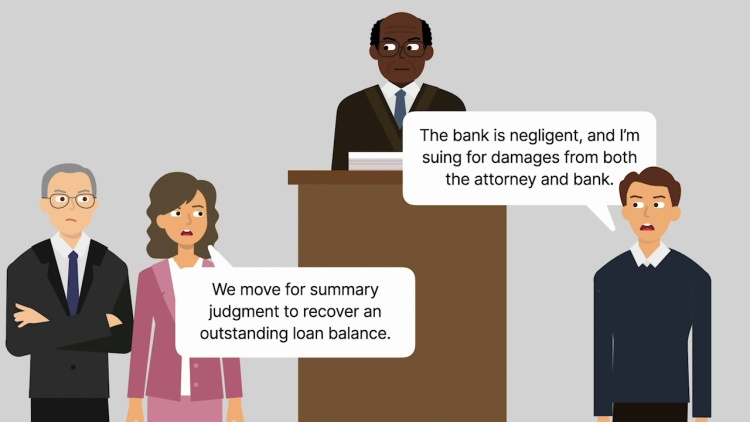Koutsogiannis v. BB&T
South Carolina Supreme Court
616 S.E.2d 425 (2005)

- Written by Sean Carroll, JD
Facts
Koutsogiannis (defendant) bought a new car with a loan taken out from BB&T (plaintiff). In May 1999, Koutsogiannis made the full monthly payment to BB&T, but BB&T’s system incorrectly marked it as a partial payment. BB&T began collection efforts against Koutsogiannis and referred the case to a third-party attorney. In October 1999, Koutsogiannis stopped making any payments, because BB&T was unable to give a correct payoff amount for the loan. The parties could not reach a settlement on the outstanding loan amount, and BB&T brought suit to recover the outstanding amount. Koutsogiannis counterclaimed for gross negligence, among other things. Koutsogiannis sought to recover for not only BB&T’s actions, but for BB&T’s attorney’s actions as well, including the attorney’s alleged stall tactics during settlement negotiations and alleged intentional deception of the trial court in a summary judgment motion. Regarding the claims involving BB&T’s attorney, BB&T requested that the trial court charge the jury on independent contractor law. The trial court denied this request and charged the jury on agency law. The jury found in favor of Koutsogiannis. BB&T appealed on the ground that the trial court did not instruct the jury on independent contractor law.
Rule of Law
Issue
Holding and Reasoning (Moore, J.)
What to do next…
Here's why 911,000 law students have relied on our case briefs:
- Written by law professors and practitioners, not other law students. 47,100 briefs, keyed to 997 casebooks. Top-notch customer support.
- The right amount of information, includes the facts, issues, rule of law, holding and reasoning, and any concurrences and dissents.
- Access in your classes, works on your mobile and tablet. Massive library of related video lessons and high quality multiple-choice questions.
- Easy to use, uniform format for every case brief. Written in plain English, not in legalese. Our briefs summarize and simplify; they don’t just repeat the court’s language.





